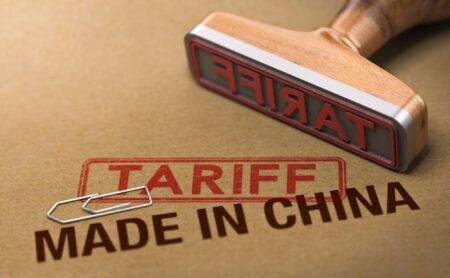By Cami Koons
The U.S. Department of Agriculture finalized a third regulatory reform under the Packers and Stockyards Act, with the latest regulation giving greater stability and fairness to chicken farmers working for major meat companies, according to an announcement Tuesday.
Agriculture Secretary Tom Vilsack said in a press conference Monday the regulation came from “the ground up” and reflects changes that poultry farmers across the country have said they needed.
“This rule basically addresses many of the concerns that we’ve heard from rank and file producers who just simply want a fair shake,” Vilsack said. “They don’t want the field necessarily tilted in their direction, they just don’t want to have to work uphill.”
The regulation limits some of the variability within the poultry tournament system, a system where growers are ranked against one another to determine pay. The new rule stops companies from deducting from a grower’s baseline pay because of their placement in the tournament system.
The rule sets that no more than 25% of a grower’s total compensation can be based on the tournament system and requires greater stability, and information, on the inputs producers receive.
The rule, according to Vilsack, will also provide producers with “key information” on the nature and extent of capital investments that a company would require a contract grower to make in order to extend a contract.
“This is a strong rule and a good rule, and it’s a rule that bubbled up from the ground up, not the top down, and I think those kinds of rules, ultimately, are successful and the ones that are preserved,” Vilsack said.
USDA has made two other rules to strengthen fairness and transparency under of the Packers and Stockyards Act during the Biden administration, including another poultry-oriented rule finalized in 2023 that mandated large processing companies give “critical information” to their poultry growers related to earnings, flock placement and protocol for sickness or natural disaster.
The other rule prohibited discrimination and banned companies from retaliating against farmers who communicate with government agencies or join grower associations.
Vilsack said USDA has also strengthened partnerships with state attorneys general and the U.S. Department of Justice to better enforce the Packers and Stockyards Act.
“We try to be responsive to the field, to the ordinary folks out there working hard every day, trying to make a living and trying to take care of their family, trying to make sure their their operation remains profitable in a tough time, and that they’re in a position to be able to turn it on to the next generation in better shape than they found it,” Vilsack said, reflecting on the work of USDA during the Biden administration.
USDA additionally announced Tuesday the withdrawal of a fourth rule, the Fair and Competitive Livestock and Poultry Markets, which it had proposed in June 2024 and would have defined general practices that were either unfair or in violation of the Packers and Stockyards Act.
Vilsack said the department chose to withdraw the rule, rather than leave it to be finalized by the incoming administration, because it was a very complex rule that could have been “fundamentally” changed by a couple of tweaks.
“If there is an intent to do that, then it seems like it ought to start from the beginning of the process, not at the end of the process,” Vilsack said.
Iowa Capital Dispatch is part of States Newsroom, a network of news bureaus supported by grants and a coalition of donors as a 501c(3) public charity. Iowa Capital Dispatch maintains editorial independence. Contact Editor Kathie Obradovich for questions: [email protected]. Follow Iowa Capital Dispatch on Facebook and Twitter.


:max_bytes(150000):strip_icc()/CornStunt-MandyBish_preview-cb2cad209367437b80abb5e4cae3989a.jpg)
:max_bytes(150000):strip_icc()/semi-2000-6fe53400df4c4210bca745be3d47c1be.jpg)



:max_bytes(150000):strip_icc()/9682285258_786194085b_o-1-2000-2b3dbe555ad44893b9af74ef336ccdd5.jpg)

:max_bytes(150000):strip_icc()/image_720-307c4058968946b5aa34315f92fe165c.jpg)

:max_bytes(150000):strip_icc()/SusanWoodImages-184997191-2000-16396af3e98e41e3b62570d33e00a00f.jpg)